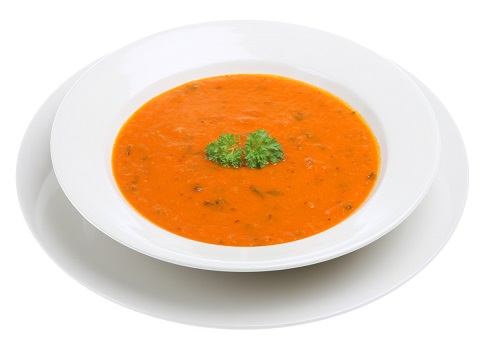Researchers have demonstrated that umami seasoning not only made the test dish (soup) more tasty and appetizing but also increased satiety, so that energy intake at the following meal was reduced.
MSG Effect on Appetite
In the study1 , published in the American Journal of Clinical Nutrition, the researchers at the University of Sussex in the United Kingdom stated that “The results implied a bi-phasic effect of MSG/IMP [a combination of monosodium glutamate (MSG) and inosine 5′ monophosphate (IMP)] on appetite, with umami flavor stimulating hunger because of increased palatability but subsequently acting to enhance satiety.” 
Monosodium glutamate (MSG) has been used, as culinary seasoning, for more than a century to increase the savory umami taste of food. It is known to act synergistically with IMP to further increase umami deliciousness. Recipes high in umami taste are generally rated as tastier and more pleasant than their lower salt or ‘no MSG’ counterparts.
The authors of this ground-breaking study state in their conclusions: “To our knowledge, this is the first study to report a biphasic action of MSG/IMP and implies that increased liking at one eating occasion can lead to better regulation at the next eating occasion.”
For more information about MSG and Umami, click here.
Try making some savory recipes with umami seasoning.
1. Masic U & Yeomans MR, Umami flavor enhances appetite but also increases satiety AJCN 2014; 100:532-8



